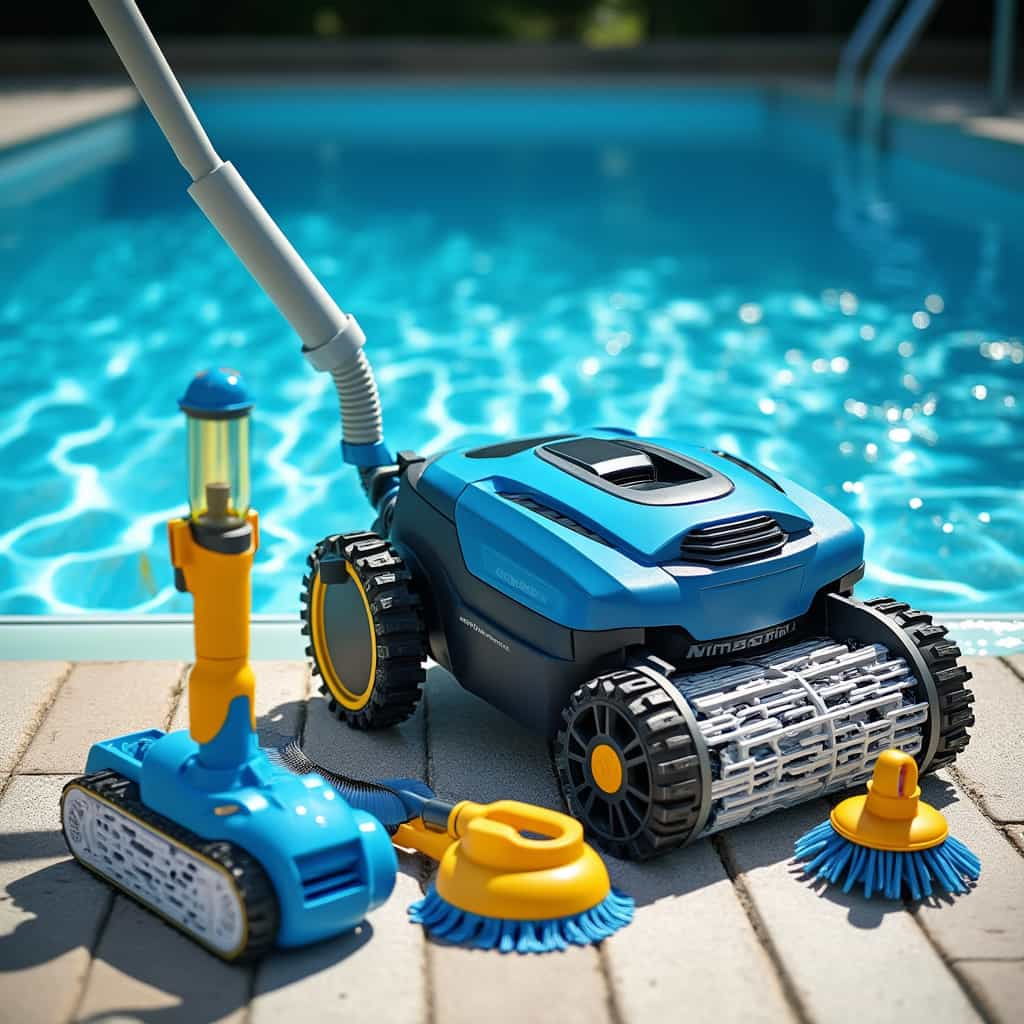Swimming pools, synonymous with luxury and relaxation, also entail a significant responsibility: their maintenance. Regular cleaning not only ensures a safe swimming environment but also prolongs the pool’s lifespan. This comprehensive guide delves into the proposals available in the market for pool cleaning, examining their costs, advantages, and the common challenges pool owners face.
A major concern among pool owners is the accumulation of debris, algae, and bacteria. Failure to address these issues may lead to serious health problems, such as skin infections or, worse, gastrointestinal illnesses if the pool water is ingested. According to Dr. Alice Greene, a public health expert, “Regular maintenance prevents potential health hazards associated with poor pool hygiene.”
Manual cleaning, though traditional, remains a popular method. It involves using nets, brushes, and vacuums to remove debris and scrub pool walls. This method is cost-effective, typically requiring only a modest investment in tools. However, it demands substantial time and effort, which might not be feasible for everyone. As a historical note, ancient Roman pools were cleaned manually, a testament to its longstanding effectiveness.
In contrast, automated pool cleaners simplify this labor-intensive task. These devices, ranging from suction-side, pressure-side to robotic pool cleaners, work autonomously to remove dirt. Robotic cleaners, albeit costly, are highly efficient. They use advanced technology to map out the pool’s dimensions, ensuring comprehensive coverage. Market experts like John Smith of Pool Innovations highlight that “investing in robotic cleaners can save money in the long term by reducing the need for chemical treatments.”
Investing in professional pool cleaning services offers a hassle-free solution. These services typically include a complete cleaning regimen: debris removal, algae treatment, and chemical balance testing. Costs can vary significantly, from $50 to $200 per session, depending on pool size and condition. However, regular professional maintenance can be more cost-efficient over time, especially for those lacking the time or expertise to manage these tasks themselves.
A common misconception is that more chemicals equate to cleaner pools. In reality, overuse of chemicals can be ineffective and potentially harmful. Proper water testing and treatment must align with the pool’s specific needs. Dr. Robert Faulkner, a chemist specializing in water treatment, advises, “Understanding your pool’s specific chemical requirements can prevent unnecessary expenses and safeguard swimmers’ health.”
Those considering eco-friendly options might explore natural pool cleaners like enzymes and plants. These alternatives reduce chemical dependency, benefiting both the environment and users’ health. While they may take longer to collect debris as efficiently as conventional methods, they offer a safe alternative for a wholesome swimming experience. Notably, designer Philippe Starck’s eco-friendly pool project utilizes nature’s own solutions to keep water clean.
Moreover, solar-powered cleaning systems present an intriguing innovation. Harnessing the sun’s power, these systems significantly reduce the carbon footprint of pool maintenance. Although initial installation costs can be high, the long-term savings on electricity bills and reduced chemical usage can be substantial. Environmental scientist Laura Keane endorses this trend, saying, “Solar-powered systems align perfectly with sustainable practices and the growing demand for environmentally conscious solutions.”
A practical tip for pool owners is to cover the pool when not in use. This simple action can minimize debris accumulation, conserve water, and reduce cleaning effort. It is reminiscent of the pool covers used by celebrities like Jay Z and Beyoncé, who reportedly use bespoke automatic covers to keep their lavish pools pristine.
In conclusion, selecting the most appropriate pool cleaning solution depends on a balance of budget, personal preference, and environmental considerations. Evaluating all available proposals and understanding the specifics of each is crucial to making informed decisions. By closely monitoring these aspects, pool owners can ensure their slice of paradise remains as clean and safe as possible.
You may also like
Suburban Real Estate Market: Guide to Buying an Independent House
Purchasing an independent house in the suburbs comes with its unique set of opportunities and challenges. This article explores the various proposals, costs, and advantages of suburban living, delving into the complexities of the market and offering insights on the most cost-effective options.
Guide to Buy an Apartment in the City Center
Purchasing an apartment in the city center is a complex process filled with opportunities and challenges. This article explores various proposals and costs, and provides a detailed comparison of the most attractive options available in today’s real estate market.
Bathtubs: Innovations and Unbeatable Offers in the Market
Bathtubs have undergone remarkable transformations over the years, evolving from simple utilitarian essentials to luxurious centerpieces in modern bathrooms. This article delves into the latest bathtub models, features, and innovations, from shower-bathtub combos to vintage clawfoot designs, highlighting market trends, geographical buying patterns, and value-for-money options.
Showers: Technological advancements and Best Buys
Delving into the latest innovations in shower designs, this article examines new models, market trends, and top recommendations for the best quality-price balance. We also explore regional purchasing trends, technological advancements, and provide insight into making informed and satisfactory purchases.
